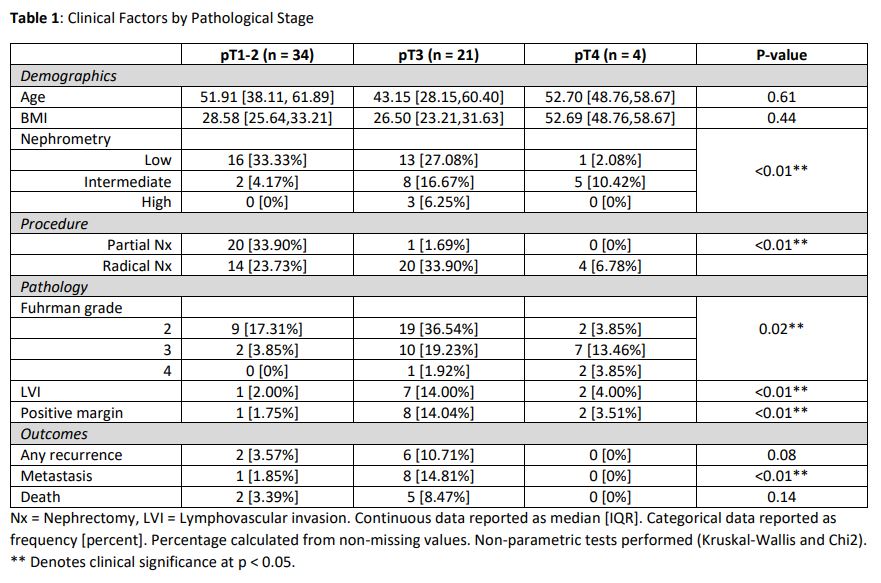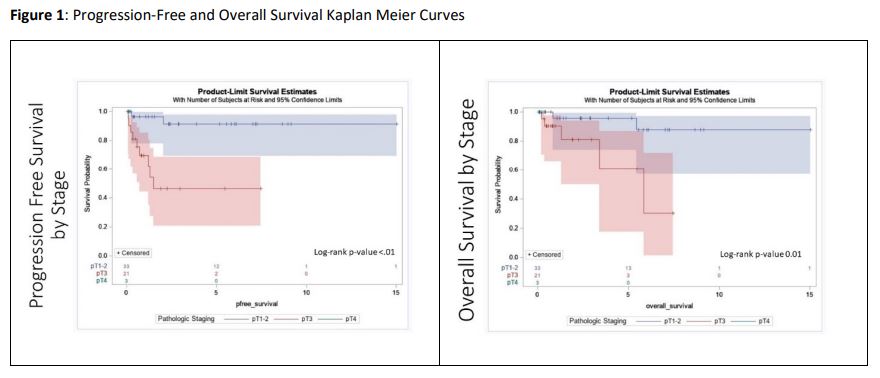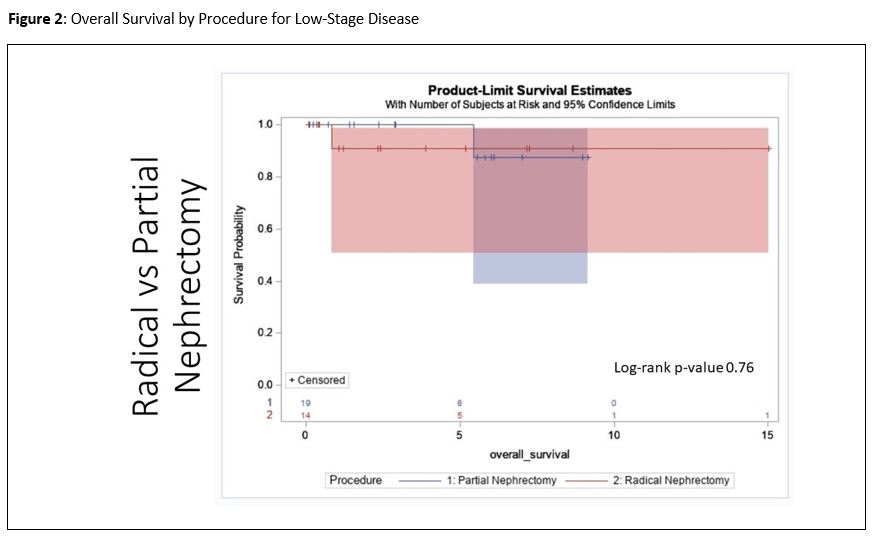Back
Poster, Podium & Video Sessions
Podium
PD15: Kidney Cancer: Epidemiology & Evaluation/Staging/Surveillance I
PD15-11: Translocation RCC: Progression-Free and Overall Survival by Tumor Stage and Surgical Procedure at a High-Volume Academic Center
Friday, May 13, 2022
5:10 PM – 5:20 PM
Location: Room 245
Jason Farrow, Nate Hollowell, Connor Drake*, Leo Song, Clint Cary, Clinton Bahler, Ronald Boris, Chandru sundaram, INDIANAPOLIS, IN
- CD
Podium Presenter(s)
Introduction: Translocation Renal Cell Carcinoma (RCC) is a rare variant and is estimated to represent 2-5% of RCC diagnoses. Prior studies characterizing the clinical behavior of translocation RCC are limited and stage-by-stage prognostication for adult patients remains uncertain.
Methods: Patients diagnosed with localized translocation RCC that underwent either partial or radical nephrectomy between 2004 and 2021 were reviewed. Standard clinico-pathologic characteristics were included. Both progression-free and overall survival were estimated using Kaplan Meier curves. Non-parametric tests in SAS were used with statistical significance set at 0.05.
Results: A total of 59 patients were identified. Age at surgery and Body Mass Index were balanced across pathological stage. Tumor complexity increased with stage, as did adverse pathological features (Fuhrman Grade 3-4, lymphovascular invasion, and margin positivity). Both progression-free and overall survival was worse for higher stage disease. Of note, low stage disease had favorable long-term survival approaching 90%; there was no difference in overall survival between partial or radical nephrectomy for low-stage disease.
Conclusions: Translocation tumors predictably demonstrate worse pathological features with stage progression. Interestingly, those patients with low-stage disease had durable treatment responses with either partial or radical nephrectomy, suggesting minimally invasive approaches may be preferred to limit perioperative morbidity without sacrificing oncologic outcomes.
Source of Funding: None



Methods: Patients diagnosed with localized translocation RCC that underwent either partial or radical nephrectomy between 2004 and 2021 were reviewed. Standard clinico-pathologic characteristics were included. Both progression-free and overall survival were estimated using Kaplan Meier curves. Non-parametric tests in SAS were used with statistical significance set at 0.05.
Results: A total of 59 patients were identified. Age at surgery and Body Mass Index were balanced across pathological stage. Tumor complexity increased with stage, as did adverse pathological features (Fuhrman Grade 3-4, lymphovascular invasion, and margin positivity). Both progression-free and overall survival was worse for higher stage disease. Of note, low stage disease had favorable long-term survival approaching 90%; there was no difference in overall survival between partial or radical nephrectomy for low-stage disease.
Conclusions: Translocation tumors predictably demonstrate worse pathological features with stage progression. Interestingly, those patients with low-stage disease had durable treatment responses with either partial or radical nephrectomy, suggesting minimally invasive approaches may be preferred to limit perioperative morbidity without sacrificing oncologic outcomes.
Source of Funding: None

.jpg)
.jpg)